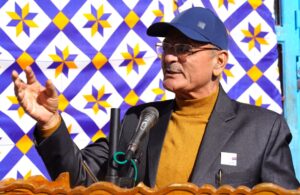
In a charged Parliament brimming with anticipation, Sh.C.P. Radhakrishnan scripted history on 9 September 2025 by becoming India’s 15th Vice President. With 452 votes against opposition nominee Justice (retd.) B. Sudarshan Reddy’s 300, the BJP veteran secured a decisive but closely watched victory, one that blends symbolism, strategy, and significant responsibility.
Born in Tamil Nadu, Radhakrishnan’s journey is the story of a party loyalist who weathered decades in the shadows. From his early days as a Rashtriya Swayamsevak Sangh (RSS) worker to serving as a two-time Coimbatore MP, and later as Governor of Jharkhand, Telangana, Puducherry, and Maharashtra, his rise has been steady and disciplined rather than flamboyant. Prime Minister Narendra Modi described him as a leader “devoted to society and empowerment of the marginalised,” a persona echoed by colleagues who view him as approachable, simple, and non-confrontational.
His election carries layered implications. Politically, it strengthens the ruling NDA’s presence across top constitutional posts, while symbolically signalling outreach to southern India, an area where the BJP is still striving for deeper electoral gains. Strategically, the choice of a soft-spoken consensus-builder over a combative figure reflects the ruling alliance’s preference for stability in the Rajya Sabha, where the Vice President presides.
But challenges lie ahead. The Rajya Sabha is often the battleground for opposition unity, where contentious legislation faces its stiffest resistance. Radhakrishnan must navigate bitter partisan divides, ensure fair debates, and uphold decorum in an increasingly polarised environment. His ability to maintain neutrality, while being a lifelong party loyalist will be under scrutiny. Moreover, with the INDIA bloc showing signs of cohesion, his role as the House’s referee may test his patience and political skills alike.
For Radhakrishnan, this victory is not just the culmination of a decades-long political journey, it is the beginning of his toughest assignment yet: steering India’s upper house with calm authority, and proving that consensus still has a place in Indian politics.


